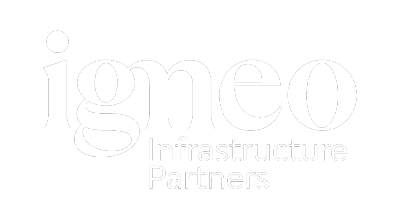Your search returned more than 50 results. The 50 most relevant results are displayed.
Learn about investing in the world's fastest growing markets with FSSA Investment Managers. We invest in high quality equities that outperform over the long term.
Learn about investing in Asian equities with FSSA Investment Managers today. Our Asia funds invest in high quality companies that outperform over the long term.
This has been an unprecedented time which continues to evolve from a markets and Covid-19 perspective. Please tune in to a panel discussion with FSSA’s lead portfolio managers: Alistair Thompson, Director; Martin Lau, Managing Partner andVinay Agarwal, Director.
Video: A land of economic stagnation and rising opportunities
We had entered the meeting with a leading air-conditioner company in our portfolio worried about the risks to its growth and profitability, as the second wave of Covid-19 affected consumer demand and raw material costs rose sharply. But the company’s CEO told us about the acceptance of increased prices by their channel partners and customers and strong demand before localised lockdowns were introduced in April. The company had reported a 24% growth in sales and more than doubling of its operating profit in the quarter ended March 2021, compared to the same period last year. He was optimistic about an improvement in their profitability despite a significant increase in raw material costs and was continuing their investments in expanding capacity.
We have just returned from India — the first investment research trip in India for our entire team in over two years. It was a liberating break from constantly hearing “You’re on mute!” on video calls whilst simultaneously being forced to appreciate your kids’ music lessons in the adjoining room. Saying, “Sorry we are a bit late, the traffic was quite bad,” face-to-face is so much more satisfying! Readers familiar with our team will know that assessing organisational culture is at the heart of our investment process. In that context, the comparison between meeting the CEO and the senior management team in his or her office versus a zoom call is like chalk and cheese. We can pick up several cues about culture before we even start the meeting. For example, in the composition of the car park, how bureaucratic the visitor check-in process is, whether there is segregation between management layers — right from the elevators they are allowed to use (yes, this is a thing!) — or if there are pictures of the CEO/owner with famous personalities in the boardrooms and so much more. When a new CEO of a company tells us that capital allocation is going to change for the better, we need to see the look in his or her eye and the body language and the mood in the office to believe it. For our team, a return to ‘normal’ feels like a major handicap has been lifted.
Our investment philosophy is to back owners and managers with whom we feel strongly aligned. These owners typically have track records of treating all stakeholders fairly, in both good and bad times. They are ambitious in growing their business, but also risk-aware in their pursuit of growth. In India, we typically find these traits in family-owned companies (commonly referred to as “promoter groups”). Families are able to take a multi-decade view of their business and act counter-cyclically to create value for all shareholders. Our favoured promoter groups are those who recognise the advantages of introducing professionally-run management teams, high-quality boards and other best practices with respect to governance. We follow such changes closely to identify the cultural markers of families which are likely to succeed over time, and others that may be left behind.
Video: What lies ahead for post COVID-19 Japan?
We have written about the spate of Initial Public Offerings (IPOs) in India and our reasons for staying away from them, for the most part. This time, we want to talk about why new listings are important to keep the market vibrant and to keep the entrepreneurial spirit in the country alive. In the last 18 months or so, India has witnessed more than 120 IPOs and follow-on offerings. This may seem like a maniacal pace, and indeed it is. However, this statistic absolutely pales in comparison to the five-year period from March 1992 to March 1997, during which an astounding 4,712 listings occurred – equivalent to nearly three IPOs every single day for five years!
As the saying goes, “There are two kinds of forecasters: those who don't know, and those who don't know they don't know.” Recently, we have seen hordes of the latter kind, garbed as analysts, Unicorn founders, freshly-minted CEOs and so-called “experts”, as they engage in modern-day snake oil salesmanship, which is what seems to pass for Fundamental Equity Research these days. The difference between making forecasts and predictions is the difference between a rational investor and a soothsayer. Today, there are a number of companies and analysts who desperately pretend that a different set of rules apply to them. To that end, they have even invented a new jargon-littered language that has been enthusiastically adopted by the investing community. Some of the words and phrases being used (and over-used) these days make us wince. Let’s look at a few.
Land, Labour, Capital and Entrepreneurship. These are the well-known “Factors of Production” as defined by classical economists. The Entrepreneur (or Company) is the one that combines these factors to earn a profit. However, in our view, each of these factors has been overly exploited over the past 20-30 years and everything has become secondary to “profit” (to be used interchangeably with “market capitalisation”, albeit the link between the two has grown tenuous in recent years). The chart below, which shows how corporate profits have grown in relation to GDP in the US, captures the trend well — the ratio has more than doubled over 30 years. In other words, the pendulum has perhaps swung too far in favour of capital market participants.
The most attractive point about India is that there are about 6,000 listed companies across a diverse range of sectors. That gives us the opportunity to invest in high quality businesses across a range of industries. This is unlike some other emerging markets where investors might find themselves restricted to only a handful of industries. Additionally, India has one of the oldest stock markets in the world. The culture of equity ownership is prevalent and people are familiar with the rules that come with it. Over the years, governance standards, the composition of a board, gender diversity, and protection of minority shareholders — they have all improved. Over time, corporate governance regulations in India have also strengthened significantly. As regulators have tightened rules related to company privatisation, royalty payments and disclosure of related party transactions, the protection of minority shareholder interests has consistently improved. Another aspect that makes India stand out from her emerging market peers is the quality of companies there. In India, you will find many high-quality private companies
As bottom-up investors, the FSSA team carry out well over 1,500 meetings each year to assess company managements’ capabilities and the underlying strength of the franchises they run. These Monthly Manager Views are based on the team’s discussions with company management and the in-depth analysis that follows.
The Sustainable Finance Disclosure Regulation (SFDR) requires asset managers to report on up to 20 Principal Adverse Impact (PAI) indicators. PAIs are the negative impacts caused by a firm or an asset on the environment and society.
China made headlines for watering down coal reduction targets during COP26 , but we think the criticism is unfair. The nation’s own targets set by President Xi Jinping last year – for peak emissions before 2030 and carbon neutrality by 2060 – are still ambitious and noteworthy considering China’s faster economic growth compared to developed countries. Much of China’s carbon-intensive activities over the years, especially in manufacturing, had been outsourced from the West. This makes China’s goals more impressive, considering the scale of change the country needs to make while retaining many of its core industries. And more domestic companies are taking steps to reduce emissions, which suggests the direction of travel is positive and still gathering steam.
Leading global investment manager, First Sentier Investors (FSI), today announced the outcome of a review of its existing investment capabilities against its strategy.
The Sustainable Finance Disclosure Regulation (SFDR) for the European Union Mandates the disclosure of the Principal Adverse Impacts (PAI) that investment decisions have on sustainability factors.
This article focuses on three of the PAIs related to Biodiversity Areas, Emissions to Water, and Hazardous and Radioactive Waste. Each PAI provides details about the measures, some of the challenges related to them, and how investors may use the information they provide.
50x P/E!1 70x P/E! 100x P/E! Valuations that were outrageous just a few years ago are commonly bandied about by most of the investment community these days. But, ask any respected business owner and they would shake their head in disbelief. The difference in perspective is critical. The entrepreneur is looking at the free cash flows the business could generate over the long term, and how long it would take to recoup his or her investment if they were to buy a business in its entirety. At 80x P/E, which is not uncommon in India these days, it would take a full 19 years to recover the purchase cost, even if the business’ underlying cash flows (or earnings) compound at 15% annually, and there is no re-investment to achieve this growth. Business owners whom we rate highly would not allocate capital to such opportunities. Yet, we have seen many listed companies in India witness a significant re-rating of valuations in recent years, on the back of which they have delivered exceptional shareholder returns. Our decision to not invest, or sell out of such businesses on valuation grounds have been our mistakes of omission. Yet, when we analyse these errors, as we always do, we believe that these decisions were in keeping with our disciplined investment process, which has withstood the test of time. We discuss a few below.
From report writing and gathering information to the more technical side of pattern recognition and natural language processing, David Walsh, Head of Investment at RQI Investors recently joined Ausbiz to highlight how AI will affect wealth and investment management.
Despite China being the first country to face the challenges of Covid, early optimism around its control over the virus seems to have waned. As Chinese cities and provinces continue to battle against new variants and local surges, consumer spending is down and the economy is starting to slow. On top of that, there have been increasingly cumbersome regulations on Chinese technology companies, the medical sector and the property market – the latter causing the implosion of a number of property developers late last year. The Chinese government has now shifted to a more accommodating stance in a bid to stabilise the economy. But its “Common Prosperity” goal and zero-Covid policy is likely here to stay. Against this backdrop, FSSA’s portfolio managers discuss their views about the changing opportunity set in China – and how they have positioned the team’s China portfolios to tap into the longer-term growth story.
Mutations, it would seem, are not unique to the virus. Starting with some housekeeping, we always end our letters seeking feedback from our regular readers. Two common points we have received is that our letters are generally too long and the semi-annual schedule we have adhered to in the past is too infrequent. Therefore, we are pleased to implement a change in the format and cadence of our communications. In this new version, our letters will focus on portfolio updates and brief thoughts on pertinent topics. Moreover, we aim to write on a quarterly basis. This, we hope, will be more suited to the wishes of regular readers. Since our last update, the initial public offering (IPO) frenzy we have observed for the past 12-18 months has continued unabated. This is especially true in India where there have been around 100 IPOs so far this year. These newly-listed entities have raised a combined USD 12bn from investors and yet only 20 of them reported a net profit of more than USD 10m! Undoubtedly, some of these companies will grow into their valuations and, in hindsight, a few might even seem like bargains today. However, the asymmetry of information in any IPO process means that new shareholders are at a disadvantage. Many IPO prospects often fail to answer the following question convincingly: why would a knowledgeable seller, sell part of their business to a less-knowledgeable, non-strategic buyer?
Given its size and influence, China remains a key investment destination despite ongoing trade disputes and diplomatic tensions with the US and Australia. With a GDP equivalent to around 70% of the United States, many global portfolios continue to feature Chinese equities. Against this background, Martin Lau, Managing Partner at FSSA Investment Managers, provides five insights into the current and future trends shaping the Chinese economy.
First Sentier Investors, a leading global investment manager, today announces that it is setting its first nature targets as a Taskforce on Nature-related Financial Disclosures (TNFD) Adopter, in the lead up to the inaugural Global Nature Positive Summit hosted in Sydney this week.
As bottom-up investors, the FSSA team carry out well over 1,500 meetings each year to assess company managements’ capabilities and the underlying strength of the franchises they run. These monthly manager views are based on the team’s discussions with company management and the in-depth analysis that follows.
Strategists often argue that Japan is perhaps the most cyclical market amongst the major global economies, with profits highly correlated to global trade. We disagree. It is true that many of the large index constituents are companies with high overseas exposure or are highly sensitive to forex fluctuations. However, in our view, Japan’s economy is actually very defensive and mainly driven by domestic demand. Japan’s exports account for less than 20% of GDP — far lower than that of Germany or South Korea where more than 40% of GDP is derived from exports. Another misconception about Japan is that the ageing population and prolonged deflationary environment means that there are few quality companies that can deliver high growth and returns. We disagree with that notion too. Especially from a bottom-up perspective, our view is that Japan has a deep investment universe with many high-quality companies that are focused on delivering sustainable growth and returns and are uncorrelated to the global macro environment.
In almost every meeting that we have with management teams, we will ask about incentivisation. In our view, it is an important question and the answer can be highly revealing about an organisation’s culture and behaviour. While it can be easy to be deceived by articulate CEOs talking up a big game with lots of investor-friendly buzzwords, in our experience what ultimately drives outcomes (at least the ones that management teams can influence) are the incentives. As with most things, striking the right balance is key. If there are no incentives to good performance (and no disincentive for poor performance), companies often end up with capital being systematically mis-allocated without any accountability. This tends to be the case with most State-Owned Enterprises (SOEs), which is one of the reasons we are generally cautious on them. On the other hand, too much of a good thing can also have adverse consequences, which we often see in turbo-charged incentive schemes concentrated among just a few senior executives. While they might lead to exponential growth for a short period of time, the growth is usually not sustainable. After a rapid period of expansion, imbalances are typically built up and when growth inevitably slows it is usually not just one skeleton that falls out of the closet.
Every company we speak to these days tells us about the cost pressure that they are facing, emanating from rising global commodity prices. Domestic steel prices have risen by 35% y/y, copper by over 50% y/y and palm oil by over 60% y/y through February 2021. Indian corporates are being forced to reckon with sharp increases in input costs for the first time in almost a decade. We believe that pricing power is often the critical litmus test of a franchise’s quality.
First Sentier Investors, a leading global investment manager, is pleased to announce the appointment of Jamie Downing as the new Head of Distribution in EMEA, as the business continues to strengthen its global distribution team.
The China equity market includes a myriad of share classes, each with distinct characteristics.
Mon 29 Nov 2021: David Allen has been appointed to the role of Global Head of Investment Management. David brings with him over 20 years of global asset management experience where he specialised in building investment businesses and leading investment teams.
Once again, 2021 was a year full of surprises and challenges, with ongoing Covid disruptions and China turning from a global outperformer to underperformer. The Chinese government’s policy crackdowns, especially in the internet, education and property sectors, were sudden and dramatic. Meanwhile, inflation globally has moved from “transitory” to an ongoing threat to stability, coercing central banks like the US Federal Reserve to tighten from record levels of money supply, with its dampening effect being felt on correspondingly high stock prices. Fed tightening will likely affect Hong Kong markets as well, given the city’s currency and interest rates linkage to the US. Over the past year, the Hang Seng Index has underperformed the Shanghai Composite by nearly 20 percentage points, mostly in the second half of 2021 as US inflation heated up, and the premium of A-shares over H-shares widened for large companies listed in both markets. The year ahead also looks like a mixed picture — China is turning more accommodative in its policies but new Covid variants and persistent inflation remain key risks. The question on many investors’ minds is whether China can claw back its strong performance of previous years, which seems fitting as we enter the year of the tiger in the Chinese horoscope.
We examine the characteristics and trend of a well-known measure of quality - Profitability. Firstly, we discuss some of the reasons why it is a useful measure and why it might be persistent through time. It is a strong contributor to alpha, both on the long and short sides.
Global investment manager, First Sentier Investors, today announced changes to its investment capabilities within Australia.
The pandemic has accelerated certain long-term shifts in consumer behaviour, such as using more online orders for everything from clothing to food. The latest battleground appears to be groceries, but the disrupter emerged from a not-so-new technology — WeChat groups. China’s online e-commerce giants such as Meituan and Pinduoduo are now taking market share from the traditional grocers via community group buying (CGB), which began only four years ago and went mainstream during Covid-19. In this form of e-commerce, leaders of WeChat — or other platforms which recently entered the market — collect orders and have the goods delivered the next day to pick-up spots in their members’ communities. In between, the orders are aggregated by the platforms and transmitted to the upstream suppliers which deliver the goods.
China’s e-commerce and online services were among the few bright spots against the dismal economic backdrop this year. Many companies reported a surge in online sales during Covid that has remained elevated even as the number of cases fell and lockdown measures eased. While sales at China’s bricks-and-mortar retailers fell by 19% over the first quarter, online shopping grew by 6% over the same period.
As many economies have bounced back from the worst of the pandemic, concerns about central banks, the rate of money-printing and inflation have returned. Markets have responded to the arrival of better times by selling off bonds and bond-like equities. The stocks that benefited most from lower discount rates, have fallen. The most speculative, Covid-bolstered, technological and crowded end of the market have been hit the hardest. Against this backdrop, many investors are considering how to position their portfolio for the post-pandemic world. In our view, the key is to remain focused on our investment philosophy, which is to seek high-quality companies to invest in for the long term.
In our last client update in February 2021, we discussed the reasons we resisted the temptation to switch into pure cyclicals and so-called “value” stocks1 — even though we had anticipated a sector rotation in the market (the TOPIX subsequently peaked in March 2021). When there is a rise in inflation from very depressed levels it usually favours value and cyclicality, as pricing power returns to sectors that had been under pressure, no matter how temporary the effect. As such, since the Covid vaccine breakthrough last November, a number of lagging sectors, such as mining, commodities, shipping and banks, enjoyed a strong rally to which our Japan strategy had virtually no exposure. Given the commoditised nature of these businesses, and their less attractive outlook and long-term growth sustainability compared to the companies in our portfolio, it is hard to call investments in these securities anything more than a macro trade. Nevertheless, not owning them does not mean that the FSSA Japan Equity strategy is not positioned for the global recovery that is being supported by rising vaccination rates and economic re-openings.
Leading global investment manager, First Sentier Investors, today announced the completion of its corporate rebrand from First State Investments to First Sentier Investors in all markets ex Australia, effective today. In Australia, the firm has operated as First Sentier Investors since September 2019, where it was earlier known as Colonial First State Global Asset Management.
FSSA India webcast focus on the India Subcontinent Markets and Asia Pacific equities
First Sentier Investors, a leading global investment manager is pleased to announce the appointment of Adele Swan as the new Chief People and Culture Officer, effective 24 June. Ms Swan is based in Edinburgh, reporting to the CEO, Mark Steinberg.
Concentration in equity markets has reached unprecedented levels. While this has driven remarkable returns for a narrow slice of the market, it raises critical questions about diversification, valuation, and risk for equity investors.
Firstly, regulations are nothing new — it has always been a part of the investment equation. If we look at Hong Kong or Singapore for example, the government would introduce new regulations on the property market from time to time; and in China, the government has introduced a number of new regulations for banks and insurance companies over the years. In fact, last year the government changed the pricing policy on automobile insurance, affecting quite a few Chinese general insurers. Therefore, regulation risk is always something to consider. Secondly, we believe the Chinese government has indeed changed — in terms of their priorities and focus — over the last three to four years. China was particularly focused on economic growth previously; and by all accounts, China has been a major economic miracle. From poverty, it has become the second-largest economy in the world. However, in recent years under the leadership of President Xi Jinping, the Chinese government has started to focus much more on social stability and equality. Thus, the underlying spirit of the recently announced regulations seems to be targeting wealthy entrepreneurs and conglomerates. The goal is to help improve the lives of workers, for parents to ease their burden with children, and so forth. Then, there is the environmental aspect too, with the Chinese government increasingly focused on pollution and carbon neutrality. From that perspective, it certainly looks like the Chinese government is becoming more socialist than it was before. I think that is the trend and to some extent, investors will need to acknowledge and accept it when investing in China.
Looking back over 2020, a challenging year for many reasons, there were two key investment decisions that helped the performance of the FSSA Japan Equity strategy. Firstly, in the early days of the pandemic we started to identify companies that might benefit from the acceleration of secular investment trends. The 2011 Tōhoku earthquake taught us that significant external events can change consumer behaviour– even against the backdrop of Japan’s conservative society norms. The longer such catastrophes continue, the more structurally embedded the new behaviour becomes.
This paper outlines the responsible investing approach adopted by various First Sentier Investors investment teams across the globe. It involves a holistic way of thinking that addresses multiple impacts across multiple environmental, social and governance (ESG) measures. We believe it can lead to better long‑term financial and sustainability outcomes, across more measures, than more traditional frameworks.
While the pandemic is still far from over, a number of key leading indicators point to a healthy and broad-based recovery in China. Industrial production, trade activity and retail sales have been strong; and in stark contrast to the lockdowns and travel restrictions in early 2020, domestic travel, tourism and the leisure sectors in China have sprung back to life.
We believe financial markets, critical to society’s ability to function, are under threat. For too long, it has been widely accepted that short-term performance, growth, risks and financial returns should be maximised at the expense of environmental and social outcomes.
Japan has been overlooked by global investors, due to macro headwinds such as an ageing population and anaemic GDP growth. Japan is also only considered as part of a global asset allocation strategy; or sometimes as a macro trade due to the misperception of its high cyclicality. However, in our view, Japan offers a deep investment universe of high quality companies that generate sustainable growth. Find out more in this interview with Sophia Li, the portfolio manager who launched FSSA IM’s dedicated Japan strategy in 2015.
First Sentier Investors has today announced it will apply to list its first Exchange Traded Fund (ETF) on the ASX, the First Sentier Geared Australian Share Fund Complex ETF (The Fund, ASX: LEVR), which is expected to commence trading mid-May 2025.
First Sentier Investors recently presented at the Responsible Investment Association Australasia (RIAA) annual conference and hosted a design lab on how responsible investors can shape the future of Electric Vehicles (EV). This paper outlines the key challenges for EV acceptance, analyses the rollout of EV charging infrastructure around the world, and considers practical ideas for investors to super-charge the uptake of EV.
Get the right experience for you
Your location :  Australia
Australia
Australia & NZ
-
 Australia
Australia -
 New Zealand
New Zealand
Asia
-
 Hong Kong (English)
Hong Kong (English) -
 Hong Kong (Chinese)
Hong Kong (Chinese) -
 Singapore
Singapore -
 Japan
Japan



























 United Kingdom
United Kingdom 